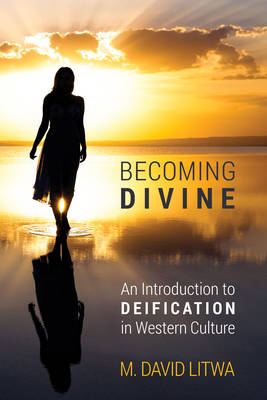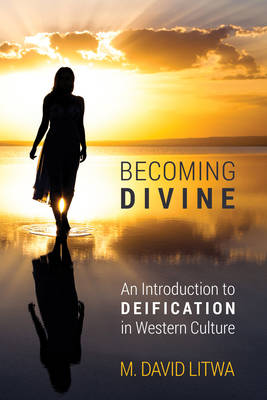
- Afhalen na 1 uur in een winkel met voorraad
- Gratis thuislevering in België vanaf € 30
- Ruim aanbod met 7 miljoen producten
- Afhalen na 1 uur in een winkel met voorraad
- Gratis thuislevering in België vanaf € 30
- Ruim aanbod met 7 miljoen producten
Zoeken
€ 49,95
+ 99 punten
Uitvoering
Omschrijving
Some have called it the essence of sin, others the depth of salvation. Regardless of one's evaluation of it, however, deification throughout Western history has been a part of human aspiration. From the ancient pharaohs to modern transhumanists, people have envisioned their own divinity. These visionaries include not only history's greatest megalomaniacs, but also mystics, sages, apostles, prophets, magicians, bishops, philosophers, atheists, and monks. Some aimed for independent deity, others realized their eternal union with God. Some anticipated godhood in heaven, others walked as gods on earth. Some accepted divinity by grace, others achieved it by their own will to power. There is no single form of deification (indeed, deification is as manifold as the human conception of God), but the many types are united by a set of interlocking themes: achieving immortality, wielding superhuman power, being filled with supernatural knowledge or love--and through these means transcending normal human (or at least "earthly") nature.
Specificaties
Betrokkenen
- Auteur(s):
- Uitgeverij:
Inhoud
- Aantal bladzijden:
- 290
- Taal:
- Engels
Eigenschappen
- Productcode (EAN):
- 9781625641557
- Verschijningsdatum:
- 30/10/2013
- Uitvoering:
- Paperback
- Formaat:
- Trade paperback (VS)
- Afmetingen:
- 152 mm x 226 mm
- Gewicht:
- 408 g

Alleen bij Standaard Boekhandel
+ 99 punten op je klantenkaart van Standaard Boekhandel
Beoordelingen
We publiceren alleen reviews die voldoen aan de voorwaarden voor reviews. Bekijk onze voorwaarden voor reviews.











